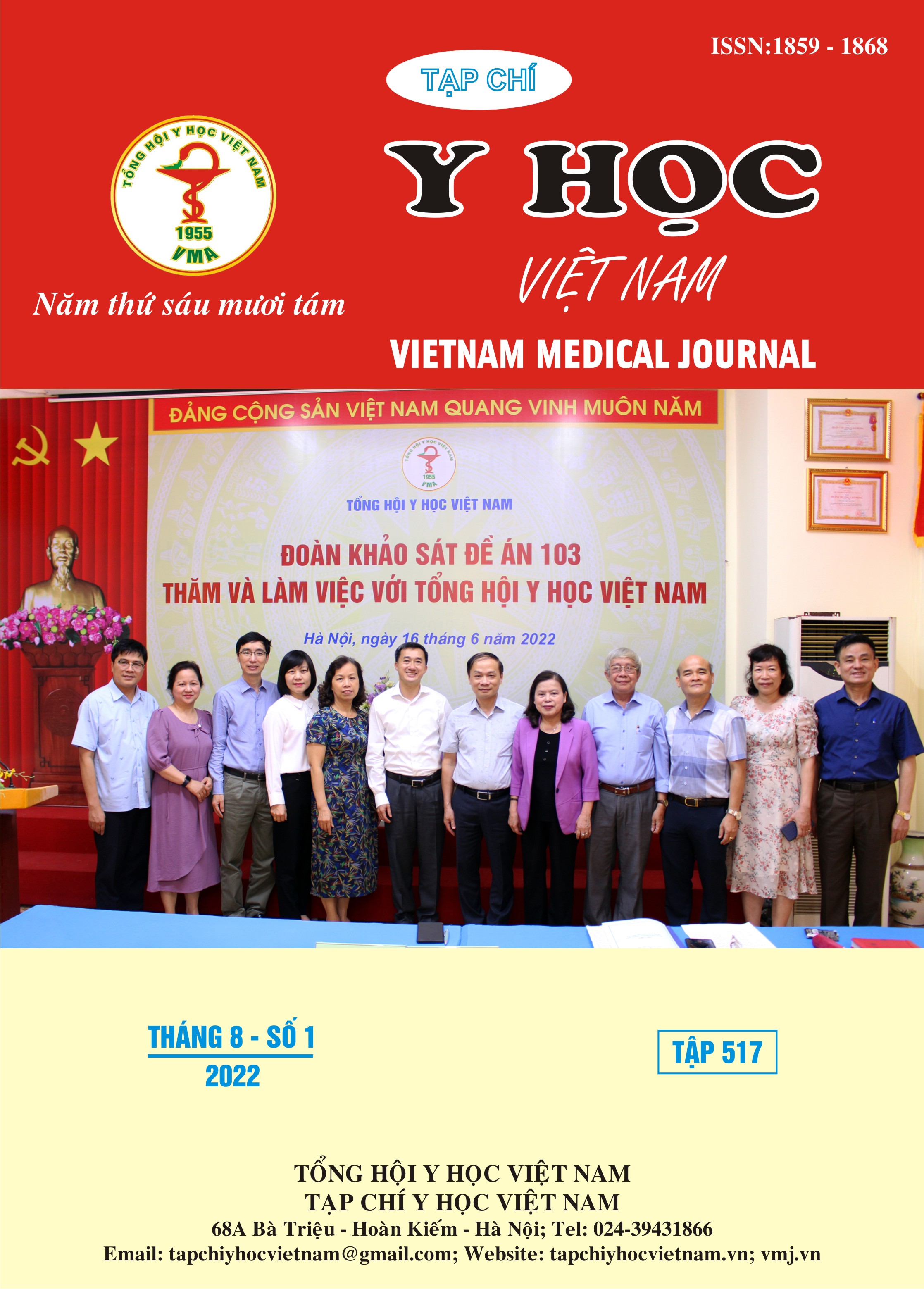THE RELATIONSHIP BETWEEN EPIDEMIOLOGICAL, CLINICAL, AND PARACLINICAL FACTORS WITH TREATMENT OUTCOMES OF ACUTE CORONARY SYNDROME AT TRA VINH PROVINCE GENERAL HOSPITAL
Main Article Content
Abstract
Objective: To analyze the relationship between epidemiological, clinical, and paraclinical factors with treatment outcomes of acute coronary syndrome at Tra Vinh Province General Hospital. Materials and methods: A cross-sectional study was carried out from March 2020 to September 2020 on 121 patients diagnosed with ACS at Tra Vinh General Hospital. Results: There was a positive correlation between mortality and symptoms of tachypnea; between symptoms of dyspnea, moist rales in the lungs, tachypnea and complications of the disease, the difference was statistically significant (p<0.05). There is an association between hypertension with mortality; between Killip class and complication rate (p < 0.05). The survival rate in patients without cardiogenic shock was 91.7%, higher than in patients with cardiogenic shock, 8.3%. The survival rate in patients with EF > 40% accounted for a higher rate than in patients with EF ≤ 40% (p < 0.01). The mean glomerular filtration rate (eGFR) was lower in the mortality group than in the survival group (p = 0.05). The mean troponin and mean creatinine were higher in the group with complications than in the group without complications (p<0.05). Conclusions: there was a correlation between factors such as age, symptoms of dyspnea, wet rales, tachycardia, elevated troponin and increased blood creatinine with the occurrence of ACS complications. In addition, patients with factors such as tachypnea, cardiogenic shock, high Killip grade, and EF < 40% had a higher mortality rate.
Article Details
Keywords
acute coronary syndrome, complications, hospital treatment results and related factors
References
2. H. H. Awad, F. A. Anderson, Jr., J. M. Gore, S. G. Goodman, R. J. Goldberg (2012) "Cardiogenic shock complicating acute coronary syndromes: insights from the Global Registry of Acute Coronary Events". Am Heart J, 163, (6), 963-71.
3. A. Babaev, P. D. Frederick, D. J. Pasta, N. Every, T. Sichrovsky, J. S. Hochman (2005) "Trends in management and outcomes of patients with acute myocardial infarction complicated by cardiogenic shock". Jama, 294, (4), 448-54.
4. S. G. Drakos, M. J. Bonios, M. I. Anastasiou-Nana, E. P. Tsagalou, J. V. Terrovitis, E. Kaldara, G. Maroulidis, S. N. Nanas, J. Kanakakis, J. N. Nanas (2009) "Long-term survival and outcomes after hospitalization for acute myocardial infarction complicated by cardiogenic shock". Clin Cardiol, 32, (8), E4-8.
5. K. L. Lee, L. H. Woodlief, E. J. Topol, W. D. Weaver, A. Betriu, J. Col, M. Simoons, P. Aylward, F. Van de Werf, R. M. Califf (1995) "Predictors of 30-day mortality in the era of reperfusion for acute myocardial infarction. Results from an international trial of 41,021 patients. GUSTO-I Investigators". Circulation, 91, (6), 1659-68.
6. P. G. Steg, O. H. Dabbous, L. J. Feldman, A. Cohen-Solal, M. C. Aumont, J. López-Sendón, A. Budaj, R. J. Goldberg, W. Klein, F. A. Anderson, Jr. (2004) "Determinants and prognostic impact of heart failure complicating acute coronary syndromes: observations from the Global Registry of Acute Coronary Events (GRACE)". Circulation, 109, (4), 494-9.
7. G. A. Whalley, G. D. Gamble, R. N. Doughty (2006) "Restrictive diastolic filling predicts death after acute myocardial infarction: systematic review and meta-analysis of prospective studies". Heart (British Cardiac Society), 92, (11), 1588-1594.
8. A. H. Wu, L. Parsons, N. R. Every, E. R. Bates (2002) "Hospital outcomes in patients presenting with congestive heart failure complicating acute myocardial infarction: a report from the Second National Registry of Myocardial Infarction (NRMI-2) ". J Am Coll Cardiol, 40, (8), 1389-94.


